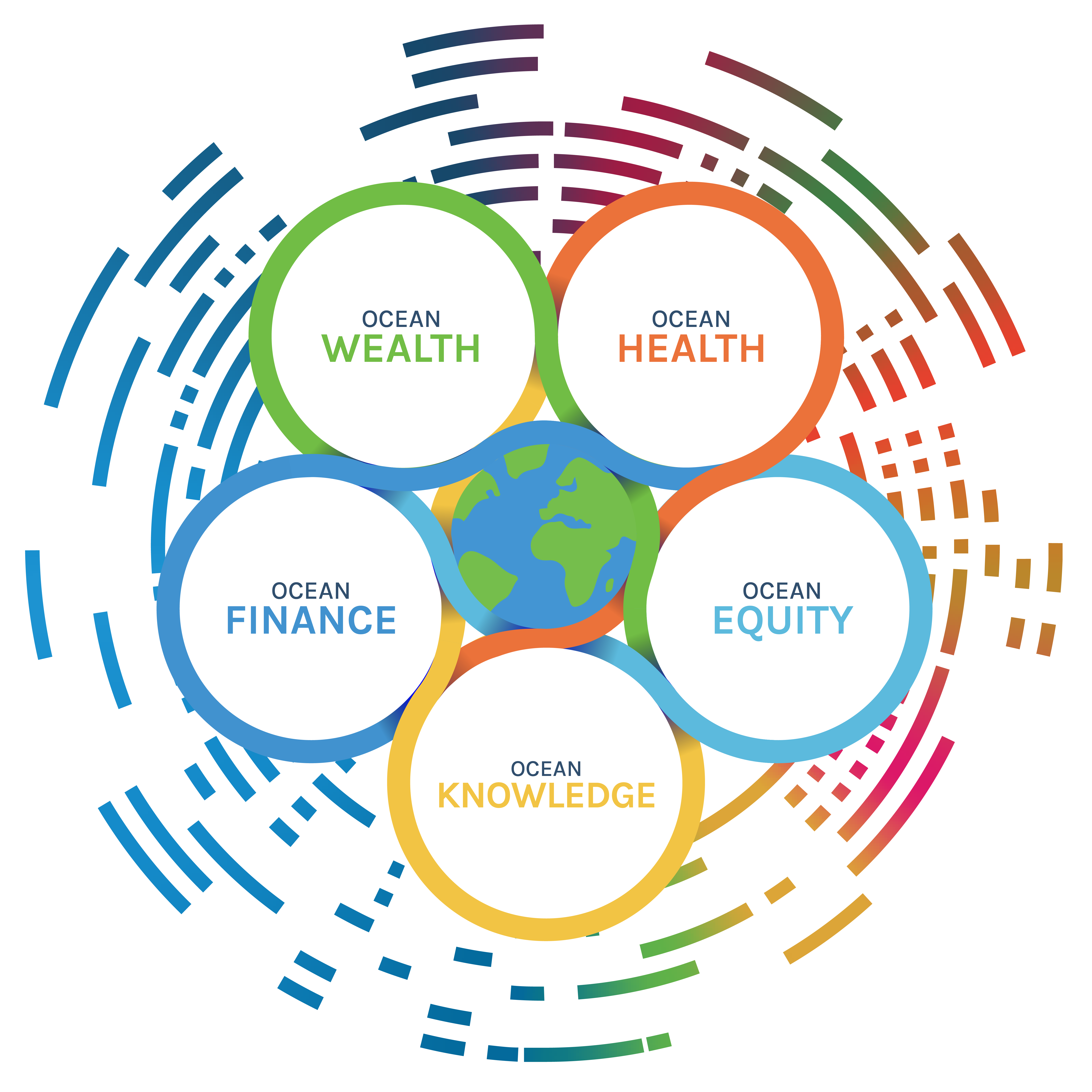
A 100% Approach
The ocean is a complex natural system that is inextricably linked to land-based activities and ecosystems. We must approach ocean management holistically in order to achieve the vision of protection, production and prosperity.
We need a comprehensive approach to sustainably manage 100% of the ocean, starting with coastal and ocean states and working together regionally and globally to safeguard areas beyond national jurisdiction.
We commit to sustainably manage 100% of the ocean area under national jurisdiction, guided by Sustainable Ocean Plans, by 2025.
We urge all coastal and ocean states to join us in this commitment so that by 2030 all ocean areas under national jurisdiction are sustainably managed.

Sustainable Ocean Plans are providing a credible basis for safeguarding the long-term health and resilience of the ocean, attracting investment and creating jobs to the benefit of coastal communities and national economies.
A Sustainable Ocean Plan describes policies and mechanisms to facilitate sustainable use of the ocean and maximise benefits and value creation for current and future generations. It provides a framework to reconcile conflicting uses of the ocean and its resources and enable long-term sustainable growth in the ocean economy.
It can include a range of mechanisms such as regulatory reform, strategic investments in emerging sectors, marine spatial planning, integrated coastal and watershed management, and the establishment and implementation of marine protected areas and other effective area-based conservation measures that can help deliver nature’s contributions to people, economic and positive biodiversity conservation outcomes, climate change mitigation and adaptation, and sustainable fish stocks.
The Sustainable Ocean Plans should be in line with the 2030 Agenda for Sustainable Development, build on integrated ocean management and ecosystem knowledge, address pressures from all land and sea-based sources, and take account of the predicted impacts of climate change. As the foundation for a sustainable ocean economy, these plans should be developed and implemented through an inclusive, participatory, transparent and accountable process.
We support a global target to protect 30% of the ocean by 2030. As a global target, it would not be binding on states individually. National decisions on marine spatial plans, marine protected areas and other effective area-based conservation measures, will depend on the state and function of the ecosystem and the extent and quality of ocean management as well as the importance of addressing human well-being, sustainable ocean food and climate change. To achieve the global target, we also call for international cooperation, including supporting capacity building in this area. Detailed content of Sustainable Ocean Plans will vary according to national circumstances.
We will work with others to mobilise and facilitate support for coastal and ocean states in developing Sustainable Ocean Plans by 2030.

Our vision for protection, production and prosperity requires mutually reinforcing transformations in five critical areas: ocean wealth, ocean health, ocean equity, ocean knowledge and ocean finance.
Action in all areas is required to achieve a sustainable ocean economy and build critical foundations for economic recovery and resilience.
The Ocean Panel presents a framework with outcomes for these five areas and a range of actions to achieve them. We commit to deliver these fully by 2030 or sooner. The framework is consistent with the existing target deadlines set in the Sustainable Development Goals, and particular effort is needed for the unfulfilled targets with a 2020 timeline. We will act with determination in accordance with national capacities and circumstances, and invite other leaders, industry and civil society to join us.


